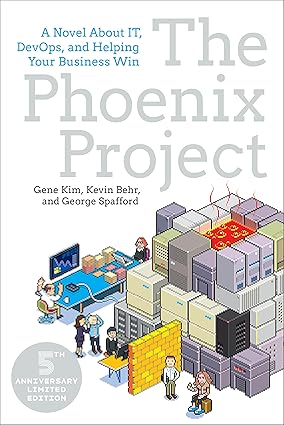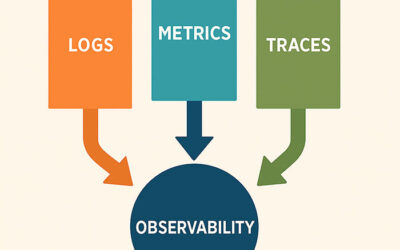Book Review: The Phoenix Project
by Gene Kim, Kevin Behr, and George Spafford
Published: February 2018
Pages: 432
The Phoenix Project has become a quintessential read for anyone interested in DevOps, IT management, and business transformation. The book is set up as a novel, allowing readers to follow the journey of Bill Palmer, an IT manager at Parts Unlimited, tasked with saving a failing IT project called “The Phoenix Project.” This story-driven approach sets it apart from typical technical or business books, making it educational and engaging.
Storyline and Key Themes
Bill is abruptly promoted to VP of IT Operations, and he’s immediately handed an overwhelming challenge: fix the disastrous Phoenix Project within 90 days or watch the company collapse. Through Bill’s journey, readers encounter familiar challenges like constant firefighting, siloed departments, lack of cross-functional communication, and the pressure to “just get it done.” Guided by Erik, a mysterious and wise mentor, Bill learns to apply principles from the Theory of Constraints and Lean Manufacturing, slowly transforming the chaotic IT department into a productive, agile, and efficient team.
The book breaks down DevOps concepts, agile workflows, and IT principles into simple, applicable lessons. The story explains the Three Ways — principles for efficient IT operations:
- The First Way: Emphasizing flow to ensure smooth work progression from development to operations.
- The Second Way: Creating feedback loops to detect and correct problems quickly.
- The Third Way: Promoting a culture of continuous learning and improvement.
Why It Resonates
The Phoenix Project resonates well because it mirrors real-world issues IT departments face in any industry. The frustration of last-minute requests, production failures, and siloed communication is all too familiar. The book also highlights the importance of aligning IT with business objectives, a critical insight for IT professionals who often feel removed from a company’s overall mission.
The authors break down DevOps without the usual jargon, making it accessible to those new to the concept while still engaging seasoned professionals. Through Bill’s journey, the book addresses organizational cultural changes, showing how DevOps principles can unify cross-functional teams, improve collaboration, and ultimately lead to faster delivery times, improved quality, and more excellent business value.
Final Thoughts
The Phoenix Project is more than a novel; it’s a roadmap for IT teams looking to transform their processes and deliver real value. By blending an engaging narrative with insightful lessons, the authors make DevOps principles relatable and understandable. It’s a must-read for IT professionals, leaders, and anyone interested in the intersection of technology and business. With humor, realism, and practical insights, The Phoenix Project offers a fresh perspective on what it takes to succeed in today’s fast-paced tech environments.




